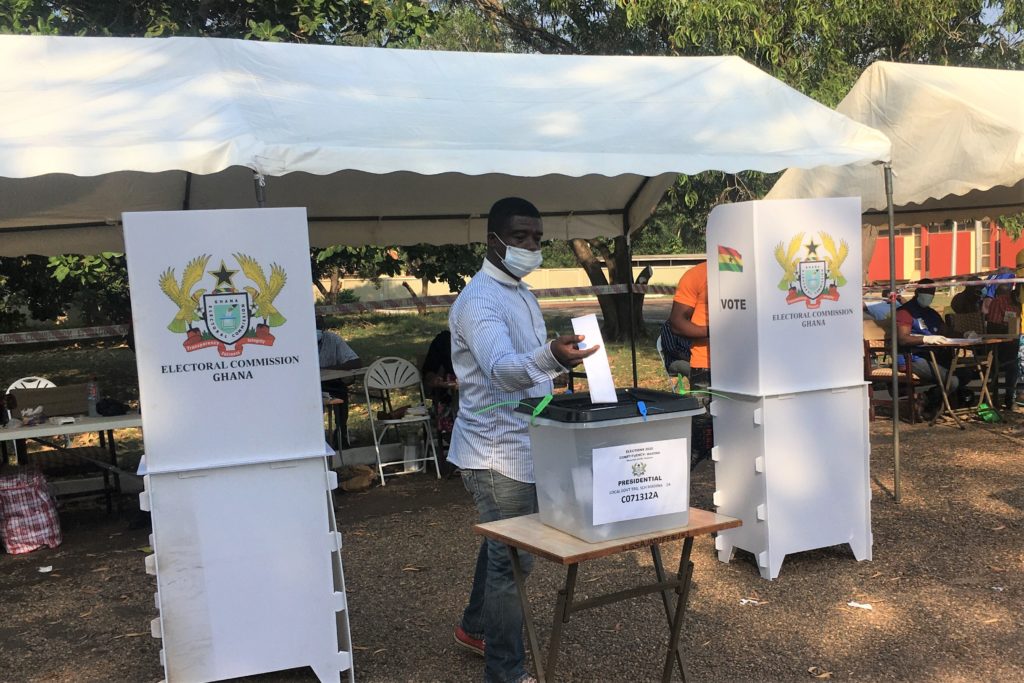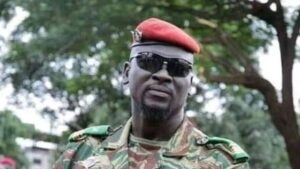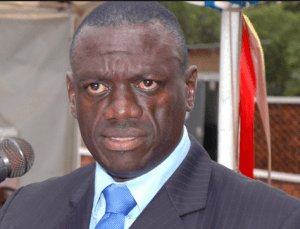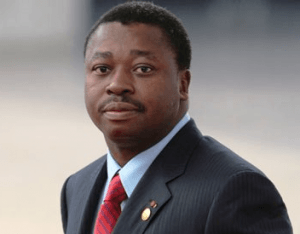Western style democracy is failing in Africa because African politicians are unethical
 Recently speaking at the United Nations General Assembly in New York, Mamady Doumbouya, the military leader of Guinea told the gathering that the western model of democracy does not work for Africa, citing the recent wave of coups, particularly in Francophone Africa as evidence.
Recently speaking at the United Nations General Assembly in New York, Mamady Doumbouya, the military leader of Guinea told the gathering that the western model of democracy does not work for Africa, citing the recent wave of coups, particularly in Francophone Africa as evidence.
Doumbouya overthrew a civilian government in a coup in 2021, becoming one of the eight countries in West and Central Africa in the last three years to have the military overthrow a civilian government. The other countries are Mali, Niger, Burkina Faso, Chad and Gabon.
West and Central Africa have the highest number of military coups on the continent. Ghana for instance had its first military coup in 1966 – the putsch overthrew the first elected government soon after independence.
Ghana was the first African country in sub-Sahara Africa to attain independence and have a democratically elected government modeled after the West. But it didn’t last a decade before the police and military took over. That began a chain of occasional military coups in the country till the last one in December 1981, resulting in the longest ruling military government in the history of the country. The country reverted to democracy in 1992.

The Guinean military leader as a soldier who took power by force, under normal circumstances might not be welcome at the UN General Assembly, because of the perceived abhorrence of forceful take-overs of government. He had his chance and the first thing he attacked was western model democracy.
What is western style democracy?
B. K. Nehru, the Indian diplomat and politician, writing an article for the Third World Quarterly in 1979 titled ‘Western Democracy and the Third World’, posits that in the western world, the system of government considered as the most civilized form of government yet evolved is the western form of democracy.
He explained further that by democracy the western world means a form of government where the legislature is elected directly by universal adult suffrage and the executive government is chosen either directly as in the presidential system or indirectly from among the elected representatives of the people, as is the norm in the parliamentary system.
“The elections must be free of all interference by executive government so as to permit complete freedom to the voter to vote the candidate or the party of his choice without fear or favour,” he added.
Further to the model is the requirement for elected governments to be accountable to the people who elected them, and run the affairs of government with transparency.
The system’s check and balance structure – where the Legislature, Judiciary, media and civil society play roles to ensure that the Executive arm of government doesn’t act with impunity or do as it pleases, goes to ensure lawful and ethical conduct in the exercise of executive power.
Democracy and development
While some time ago there was a wave of democracy in Africa, that created the sense of a new dawn in good governance when most military regimes started to return power to civilians after elections, stability, peace and security were seen to be returning in regions where uncertainty and chaos reigned.
Further to the model is the requirement for elected governments to be accountable to the people who elected them, and run the affairs of government with transparency.
The wind of democracy that blew, brought a fresh breath of hope for good governance, accountability, expectations of social and economic development, reduction in poverty and the rule of law.
But it appears democracy in and by itself, hasn’t fulfilled the dreams of many Africans who still can’t access justice and basic social services.
Nigerian scholar Damola Adejumo-Ayibiowu is of the view that the argument for democracy may be very strong for African countries, many of which have had long histories of military rule, unfair elections, unaccountable leaderships, inadequate service delivery, and popularized corruption.
However, he states that many scholars particularly argue that the lack of democracy is the main cause of poverty in Africa. But despite the implementation of donor’s good governance reforms, corruption, poverty, and other challenges continue in Africa.
“Moreover, the wave of democratization which swept across Africa in the 1990s mainly paved the way for multiparty elections without improving the welfare of African poor masses who queue for hours to cast their votes. The implementation of Western liberal democracy in Africa has also been characterized by violence and election rigging,” he writes.
The problem is not democracy, it’s the African politician

While it is easy to fault the system of government as the problem, it must be noted that one can’t blame a vehicle for running into a structure when it is driven by an incompetent driver, especially when that vehicle is certified to be in good condition.
African politicians endorse constitutions to run their countries. While campaigning to be elected, they would put up an appearance of being democrats – people who believe in the rule of law and compliance to the checks and balances of the system. They would extol all the good of democracy, freedom of expression, human rights and justice, and belief in the independence of institutions and accountability. But as soon as they win an election, they become the law. They would begin to flout every principle that they espoused during campaigns.
There are examples across the continent where for instance, in Uganda, opposition candidates are constantly harassed by the police, arrested, detained and prevented from holding rallies. One-time opposition leader Kizza Besigye, was constantly arrested, brutalized and detained by state security anytime he held a public gathering and his supporters are also mistreated.
When Robert Kyagulanyi Ssentamu, popularly known as Bobbie Wine, a Member of Parliament took over from Besigye and became the main opposition leader, the state security apparatus turned on him. The young man has been, like his predecessor, arrested and mistreated multiple times, and some of his supporters have gone missing with some brutalised so badly that they are living with life-long injuries while Yoweri Museveni’s supporters taunt and ridicule them.
Every time elections are held in Uganda, the main opposition candidate with the slightest sign of being able to defeat Museveni is never allowed to freely contest the elections.
The wind of democracy that blew, brought a fresh breath of hope for good governance, accountability, expectations of social and economic development, reduction in poverty and the rule of law.
There are African countries where any individual who declares their intention to contest the sitting president is either arrested, chased out into exile or ends up dead within or outside the country. There are death squads who hunt and kill viable opponents in some of these countries. Journalists and activists are not spared either.
In Cote d’Ivoire, President Allasane Ouattara changed his country’s constitution to contest for a third term. That decision in 2020 to amend his country’s constitution to make the then 78-year-old run for a third term stirred violence in the country between his supporters and opposition supporters.
For more than 40 years, the Bongo dynasty in Gabon held elections which only a Bongo would win.

Elections are held in Togo every year, but the Eyadema dynasty has always won. While the mere holding of elections is said to make the system in Togo democratic, opposition politicians are constantly harassed, arrested and detained. Independent journalists in that country have been arrested and detained so many times, those who do critical journalism like Ferdinand Ayite have had to flee the country, when it became obvious that he and his managing editor were going to be jailed for comments they made on TV.
Even Ghana that used to be seen as the beacon of democracy in West Africa has recently deteriorated. There is very little transparency in governance. Citizens who demand accountability and want to protest are arrested and beaten by police. Critical journalism has been emasculated using media ownership as a tool, while corruption has effectively become normalised. An Auditor-General who was doing his work of checking public officials who abused and mismanaged public funds was vilified and chased out of office by the President’s secretary.
In recent times, the Office of the Special Prosecutor, a Constitutional institution mandated to investigate corruption has been facing a backlash for doing exactly what it has been set up to do – investigating corruption by public officials. Journalists have been arrested by state security, brutalised and detained for doing their work. The gruesome, cowardly murder of Ahmed Hussein-Suale in 2019 is still fresh in the minds of many – and his murder was instigated by a sitting Member of Parliament, Kennedy Agyepong of the ruling government. He is now contesting for the presidential ticket of his party.
While African politicians are claiming western style democracy isn’t working on the continent and therefore are somewhat rejecting it, on the other hand they seem to embrace western education, banks and financial institutions, villas, grants and aid.
Most institutions like Parliament, the Council of State, Office of the Special Prosecutor, the Judiciary depend on the Executive for their funding – as such the Executive uses the withholding of funds and sometimes delay in funding to weaken them. Some are also filled with partisans which has overtime weakened their ability to hold the Executive to account leading to mismanagement and bad governance that have plunged the country into economic crisis.
It suffices to say that the problems of governance in Africa, isn’t the model of democracy, but Africa’s unethical politicians who exploit a winner-takes all system and bastardise the rule of law, putting themselves above the law and acting with impunity.
African Head of States attend international meetings where they sign and adopt resolutions they never intend to implement in their countries.
They go to African Union and other Africa meetings where they also sign onto agreements that they do not often implement in their countries.
A look at the African Continental Free Trade Area (AfCFTA) would reveal a grim picture of an ambitious and useful project which implementation is moving slower than a snail. Despite the enormous usefulness and utility of the AfCFTA in spurring trade and economic growth in Africa, not all African governments are speeding the process to unlock and unleash the full potential and benefits of the AfCFTA to the continent.
Most of the countries in Africa, subscribe to western style democracy, but even a casual observation of these countries would show that democracy is not the problem, African politicians are the problem.
Most institutions like Parliament, the Council of State, Office of the Special Prosecutor, the Judiciary depend on the Executive for their funding – as such the Executive uses the withholding of funds and sometimes delay in funding to weaken them.
Africa isn’t poor
It had been expected that democracy would expand the frontiers of personal freedom, improve justice and equitable distribution of wealth and spur economic growth across countries practicing it. But that didn’t happen in most African countries. It has instead led to cronyism, rent seeking, plain thievery, corruption, graft and mismanagement and instead of creating wealth for a majority, it has rather created a small group of wealthy political class and their assigns.
Africa isn’t poor, but most of its people are stuck in poverty. According to the United Nations Conference on Trade and Development, in 2021 some 490 million Africans live in poverty, and more than 30 million more of this figure as a result of the COVID-19 pandemic.
Meanwhile, Africa has potential to feed the world if agriculture is properly developed. According to the African Development Bank the continent has 65 per cent of the world’s remaining uncultivated arable land, an abundance of fresh water and about 300 days of sunshine each year.
The continent also exports $6 billion worth of coffee every year which is processed into a $100 billion business around the world. It also produces about 80 per cent of the cocoa that serves the $100 billion chocolate industry. Not to talk about holding more than 60 per cent of the world’s precious metals.
But democracy with its checks and balances hasn’t been allowed to function. It has been abused, truncated and its principles muddied, making it impossible for governance in most African countries to flourish.
While African politicians are claiming western style democracy isn’t working on the continent and therefore are somewhat rejecting it, on the other hand they seem to embrace western education, banks and financial institutions, villas, grants and aid.
The western model of democracy has the structures for a functional society and governance, but Africa’s unethical politicians have broken it, and that’s why it hasn’t worked for Africa.
By Emmanuel K Dogbevi
Copyright ©2023 by NewsBridge Africa
All rights reserved. This article or any portion thereof may not be reproduced or used in any manner whatsoever without the express written permission of the publisher except for the use of brief quotations in reviews.
